Bazzite Linux has seen an upgrade to the just released Fedora 41, and with it comes lots of extra enhancements to their support of various PC gaming handhelds from AYANEO, ROG Ally and others.
What is Bazzite? It's "a cloud native image built upon Fedora Atomic Desktops that brings the best of Linux gaming to all of your devices - including your favorite handheld". Basically, it's a SteamOS-like based on Fedora that can turn your Windows handhelds into a smooth Linux device.
With the Bazzite F41 update they've got an updated Linux kernel v6.11 that includes patches for Ayaneo, OneXPlayer, Ayn, basic controller support for the MSI Claw and a whole lot more goodies. Some of these changes include:
- Speaker patches for Ayaneo Geek, Geek 1S, 1S, 2, 2S, Kun, Flip KB, Flip DS, and Ayn Loki MiniPro.
- Display quirks for Ayaneo Flip DS, Neo 2S, GEEK, Founder edition and Ayaneo 2.
- ROG Ally has a new patch that "selects the correct firmware for the Ally speakers, offering superior performance for users that used the incorrect firmware previously".
- OneXPlayer X1 and X1 Mini sensors driver updated with "support for charge limiting and charge bypass" plus allowing control of the Turbo LED.
- The MSI Claw also had support added to the "Handheld Daemon, where the front OEM buttons and the controller will work properly in Steam Gaming Mode". Lots of work still needed there though as there's plenty missing like TDP controls and back buttons.
Lots of background work on the Bazzite project as a whole too. Bazzite has grown massively recently, with even the likes of Digital Foundry giving it a spin showing how it can improve on the mess of Windows on handhelds:
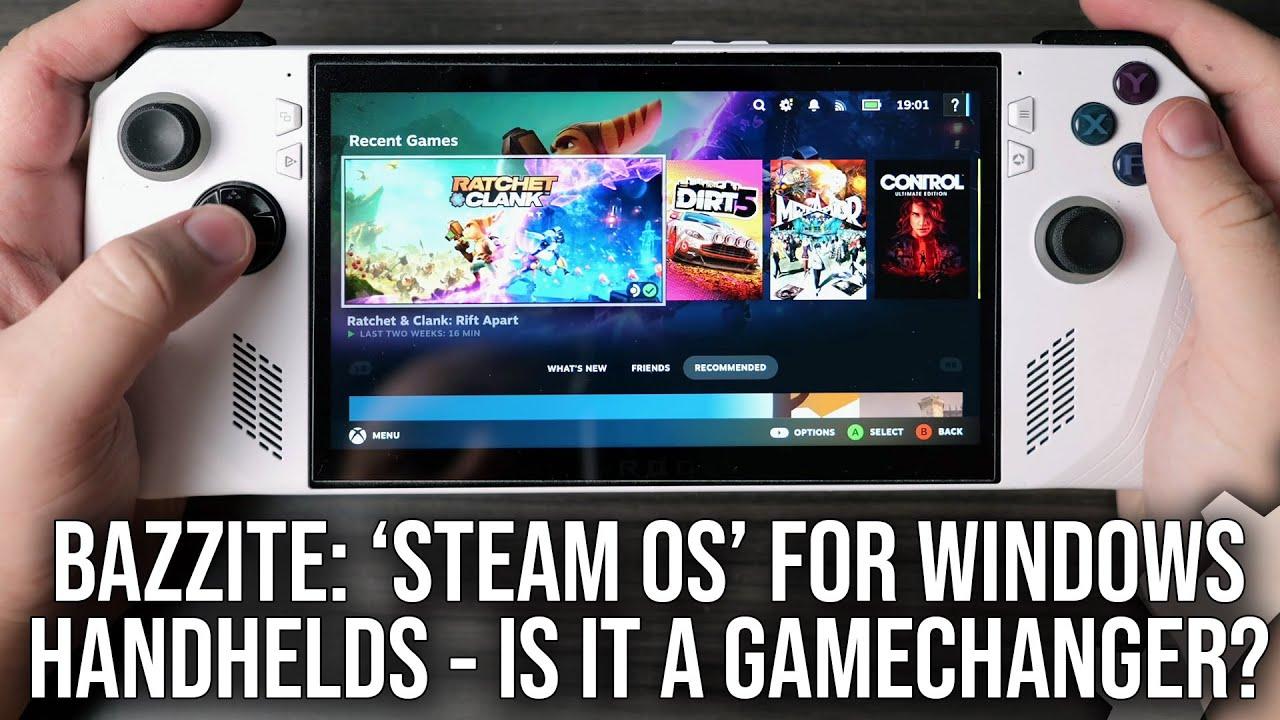
Direct Link
See more in their announcement and official site.
Given the actual plain meaning of the word "immutable" I think that's kind of understandable. What I find weird is deciding to go Humpty-Dumpty and use the word to mean something that's apparently completely different.Gotta say, this sounds kind of . . . mutable.Not really any more than functional programming being able to represent a changing state despite immutable values. Some people just don't have a good grasp of what immutability in this context means, because it definitely doesn't need to mean that nothing is ever allowed to change.
Given the actual plain meaning of the word "immutable" I think that's kind of understandable. What I find weird is deciding to go Humpty-Dumpty and use the word to mean something that's apparently completely different.And the system still works according to the plain meaning, you just need to actually look at how state change happens. Deployments are immutable unless unlocked (we will ignore overlayfs for now). What is allowed is creation of new deployments, which can add, change or remove packages. Whether the user can affect how deployments are created or not does not affect whether the system is immutable. So, nobody is going "Humpty-Dumpty" here, the terminology is consistently applied, you just have a preconceived notion of what an immutable OS is like, which doesn't match the reality on the ground. I mean, it sure would be a bit awkward if SteamOS was "immutable" in the sense that not a single bit on the root filesystem was ever allowed to change. :)
I use Aurora on my laptops since I don't use Steam on those. Like Bazzite-KDE, it's a modified Kinoite. Also like Bazzite, it's very easy to set up and get going.
I really like what the guys over at Universal Blue are doing. I was very hesitant about changing to another distro from Kubuntu, as I've used it for several years and my system was very stable. However, Canonical's further push into Snaps (they made CUPS a Snap in 24.10!), I had to leave Kubuntu behind. Discovering Bazzite and Aurora was quite timely, and I'm very pleased that they've been working so well. Bazzite (and Aurora) have been so stable and zero maintenance that it's boring; which is what I want.
Also, being Fedora-based means I get newer drivers and stuff than Ubuntu, but without being bleeding edge like Arch. After my experience running EndeavourOS for just about a year, I've sworn off using Arch or anything Arch-based. SteamOS on my Deck is the sole exception.
Last edited by CyborgZeta on 31 Oct 2024 at 4:10 pm UTC
Any mini PC recommendations? I'm looking for ready-made a little box, so not looking to build my own pc.
This is a really good article with few recommendations https://www.logicalincrements.com/articles/build-pc-living-room-gaming-steam-machine. I will built something similar to second option.
Having a desktop pc that just stood there with a decent amd gpu I wanted to put this pc in my living room. Sadly the install for Bazzite is so huge that it wouldn't fit on any of the USB's I have at home, I ended up with chimera OS instead, but that was a real pain to install also. I hade to clean format my hard drives, edit the install script and then I finally manage to get it installed. So if there is one who want so take the market by storm, just make an easy install. I will probably try Bazzite os again once they have some kind of install over the internet. Chimera was painful to install.I used a 16GB USB stick to create the installer for Bazzite and it worked perfectly fine when I tried it on a PC I recently purchased. You don't need anything more than a 16GB USB stick since the installer itself it about 10GB.
I see my biggest I have is just 8gb, it’s not expensive to get a bigger, but I do believe Bazzite main problem is there size of the install, and maybe I’m a small majority that faces this issue. I’m interested in taking a. Look at the new HoloIso also, but for now it’s chimera, have fun with Bazzite 🙂
Having a desktop pc that just stood there with a decent amd gpu I wanted to put this pc in my living room. Sadly the install for Bazzite is so huge that it wouldn't fit on any of the USB's I have at home, I ended up with chimera OS instead, but that was a real pain to install also. I hade to clean format my hard drives, edit the install script and then I finally manage to get it installed. So if there is one who want so take the market by storm, just make an easy install. I will probably try Bazzite os again once they have some kind of install over the internet. Chimera was painful to install.
I used a 16GB USB stick to create the installer for Bazzite and it worked perfectly fine when I tried it on a PC I recently purchased. You don't need anything more than a 16GB USB stick since the installer itself it about 10GB.
Just a heads up. Bazzite can be picky about what kind of USB stick you can use. It just refused to boot from my Kingston stick even though Kubuntu, Fedora and Windows 10 worked just fine on it. I went out and bought a Samsung stick and that one worked.
Even with rufus, somehow rufus seems to always solve any issues I face with the usb sticks. I have a Kingston 8gb
I wish it wasn't immutable so I could remove stuff I don't want like Lutris. That's the only thing stopping me from doing the Switch on my Steam Deck, really.Just `rpm-ostree override remove <package>`. It's the same stuff as all the immutable Fedora variants.
Huh, like mentioned by comments above I didn't expect immutable to be... mutable in some way. Though after reading all your successive comments I get why they did it. I wish they had this info in a FAQ of some sort tho, as if you had not told me this, I would have never known (I have used and love Linux - though currently stuck on Windows for a few pieces of incompatible Wine software) that this command existed.
Thank you very much!
basically it works like states. your currently booted system is one read only state and cant be modifed (new files can be overlayed though in /etc and /var/home/ and a few other places but the rest of the filesystem is read only)
when you update or install a package with rpm-ostree a new "state" is created with the changes and then locked. It does not apply changes to your current filesystem like a typical os would.
when you reboot your PC the new state is set as active and it boots that one thus allowing you to have new packages installed
from what i understand bazzite is not immutable in the traditional sense. its atomic
basically it works like states. your currently booted system is one read only state and cant be modifed (new files can be overlayed though in /etc and /var/home/ and a few other places but the rest of the filesystem is read only)
when you update or install a package with rpm-ostree a new "state" is created with the changes and then locked. It does not apply changes to your current filesystem like a typical os would.
when you reboot your PC the new state is set as active and it boots that one thus allowing you to have new packages installed
That is exactly how it works. You can even layer new packages using `rpm-ostree install`, but it could eventually lead to conflicts during updates, so it's better to keep that to minimum. I think in case of fedora atomic, even /opt is now mutable and you can do changes there.
Last edited by Zlopez on 11 Nov 2024 at 11:43 am UTC
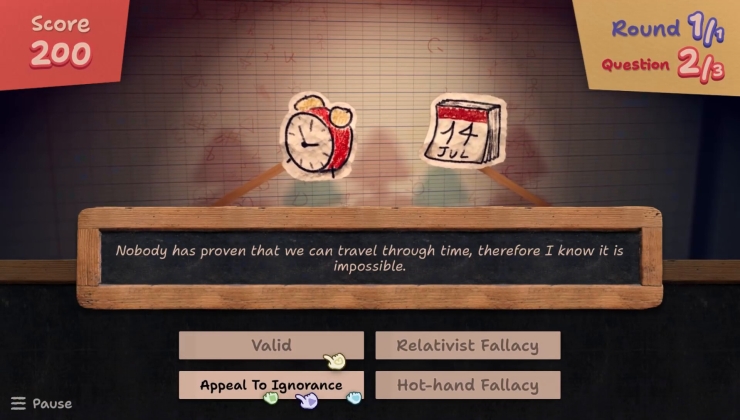
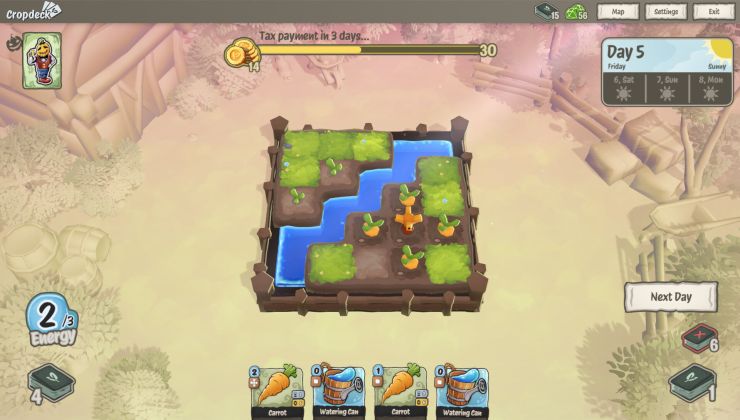
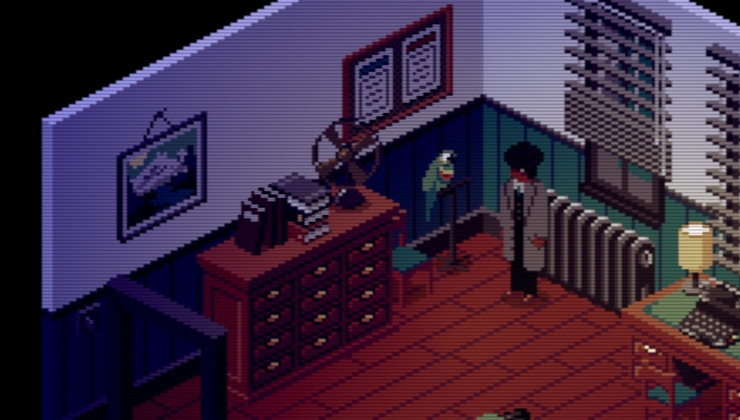
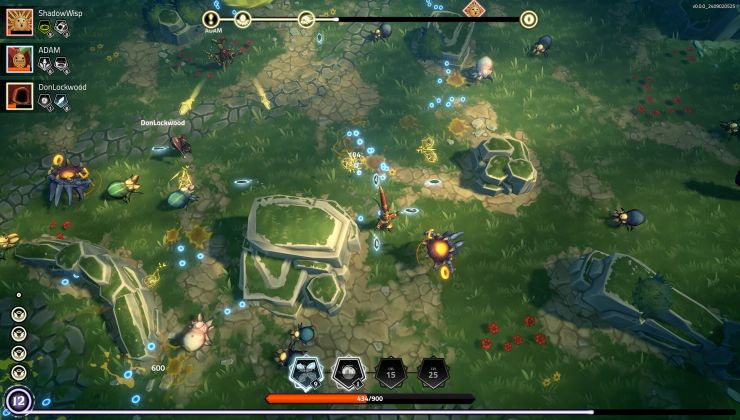




 How to set, change and reset your SteamOS / Steam Deck desktop sudo password
How to set, change and reset your SteamOS / Steam Deck desktop sudo password How to set up Decky Loader on Steam Deck / SteamOS for easy plugins
How to set up Decky Loader on Steam Deck / SteamOS for easy plugins
See more from me